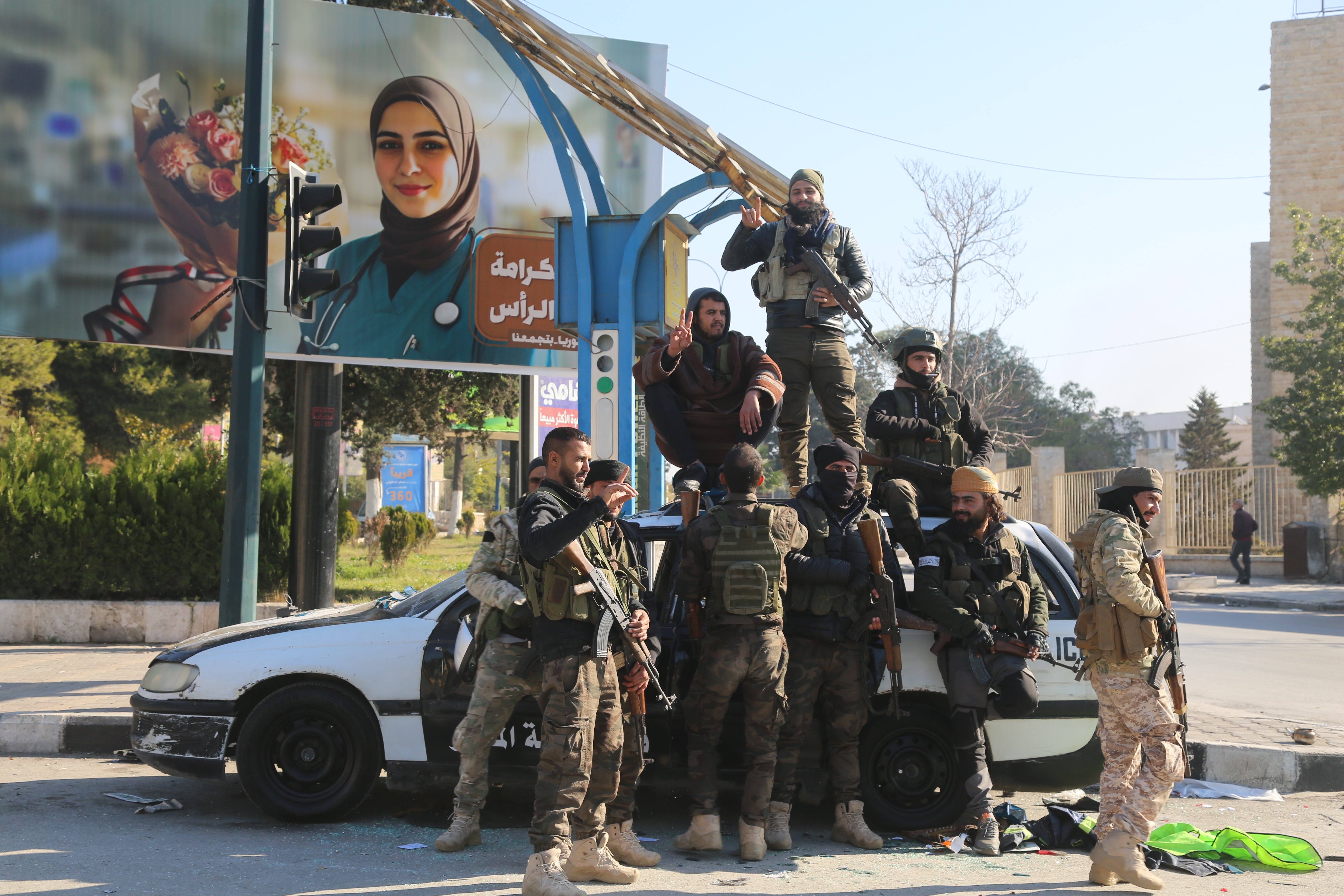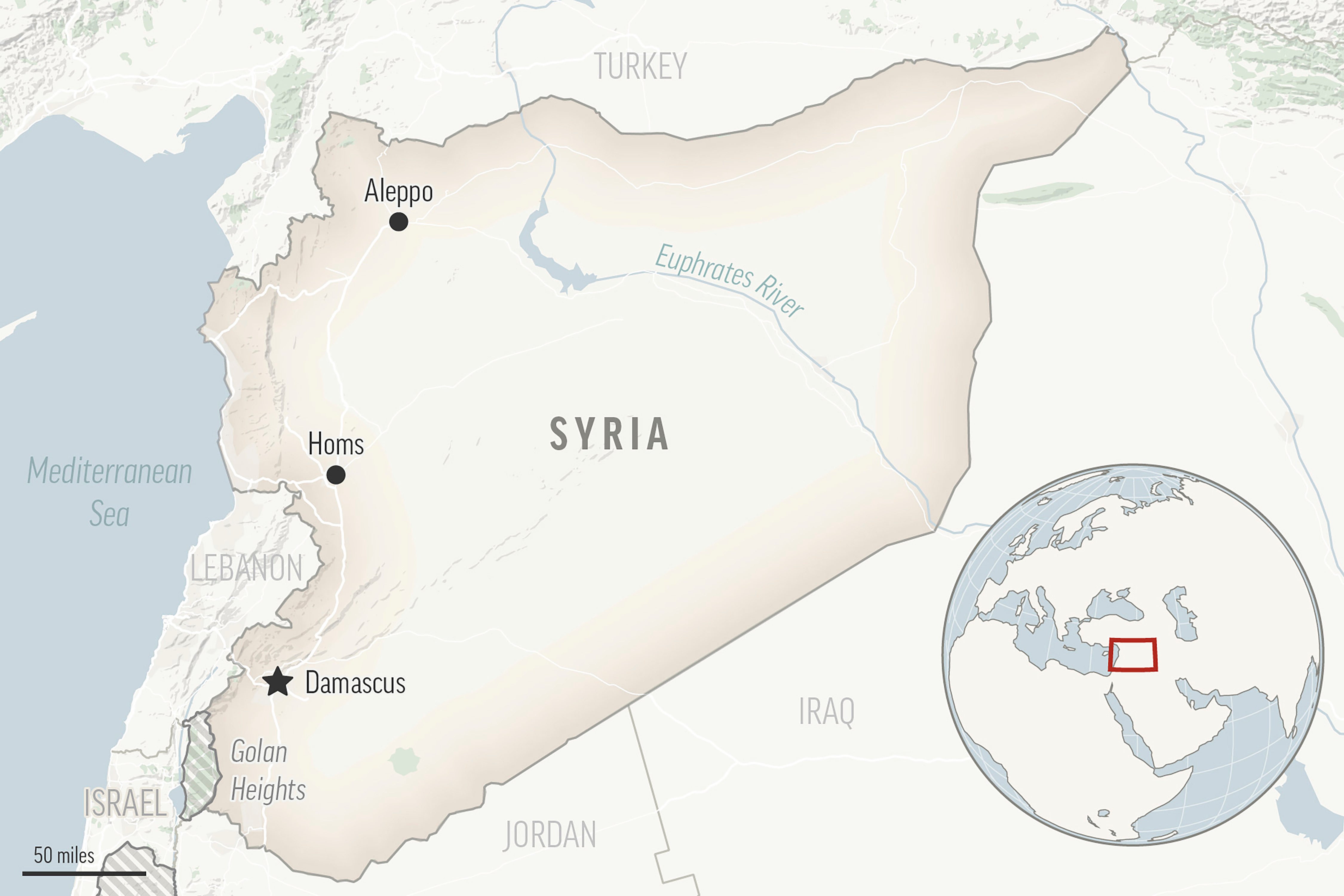Aleppo attack: The forgotten war in Syria has finally grabbed the world’s attention
Analysis: Many believed Syria was lost in an unsolvable abyss – but everything has changed in a matter of days

For years, the world forgot about Syria. Many believed it was lost in an unsolvable abyss following the collapse of the 2011 revolution into a bloody civil war – made increasingly complex by the intervention of a mess of international actors.
Most assumed that the immovable regime of Bashar al-Assad had won, and that nothing would ever change. Few could even tell you if the war was still ongoing, let alone what stage it was at.
That changed just a few days ago, when the success of a shock offensive by a hodgepodge of anti-Assad forces took everyone – including the insurgents themselves – by surprise.
Regime forces appeared to dissolve as tens of thousands of fighters stormed Syria’s second city, Aleppo, and then continued their advance southward towards Hama. This appears to have triggered uprisings and offensives from multiple factions across the country, with clashes reported in the north, south, east and west.

Assad hurried back to Damascus from Moscow and spent hours frantically calling Middle Eastern governments that had normalised relations with him last year, according to Charles Lister, director of the Syria programme at the Middle East Institute (MEI).
The embattled autocrat reportedly demanded their support in “countering terrorism”, the analyst wrote on X, formerly Twitter.
Whether anyone will come to Assad’s rescue remains to be seen. But for the first time in years, the paper tiger that is his regime – corrupt, broken, and deeply indebted to its backers, Russia and Iran – was exposed.
The offensive was launched by a coalition of over a dozen factions based in the Turkish-controlled northwestern province of Idlib. It was spearheaded by Hay’at Tahrir al-Sham (HTS), an Islamist group once aligned with al-Qaeda, that over the years has worked hard to distance itself from its shadowy jihadi past.
Syrian journalists on the ground told me this coalition has regained control of Aleppo, the military and civilian airport, and the once-revolutionary towns along the road to Hama, another major city south of Aleppo.
Internally displaced people who were forced to flee this area during the regime’s takeover five years ago have returned for the first time.
Further east, there were reports that Kurdish-led Syrian Democratic Forces (SDF) (led by their Arab factions), which nominally control the northeast of the country, were looking to exploit the situation, prepping an offensive against regime forces in Raqqa and Deir Ezzor.
In the south, inspired by the opposition’s swift gains in the north, former opposition figures who had “reconciled” with the regime are also rising up.

Lister said that these former rebels have taken towns in rural Homs from the regime, and are now threatening to march on the provincial capital. Similar clashes have erupted around Syria’s capital, Damascus, and in the southern province of Daraa – once the cradle of the revolution.
There, former opposition factions were also reportedly fighting regime forces in six towns, with regime soldiers abandoning their positions.
“Syria’s crisis was dismissed as over, frozen, or otherwise irrelevant by so many in recent years,” Lister wrote on X. “Those of us warning of how fragile the situation was and how weak Assad’s regime was becoming were dismissed as alarmist. Truth prevails. Eventually.”
In Aleppo province, one journalist, Omar al-Bam, who for years has been internally displaced in Idlib, spoke to The Independent about returning to his family home in Maarat al-Numan outside Aleppo for the first time in five years.
He said there were “no words” to describe how he felt. “In Aleppo, everyone was shocked; we didn’t think it would take just three days to overcome the regime.”
But the seeds of this crisis have been steadily growing for some time.
Assad has been diminishing his internal support for years, because he hasn’t changed the way he rules, and because of a lack of peace dividends even after normalisation with neighbouring countries, explains Emma Beals, a non-resident fellow at the MEI.

“[His government] continued to operate as an extractive, corrupt regime, running illicit economies and squirrelling most of their wealth out of the country. There’s a huge economic crisis, and the troops have poor morale and minimal support,” she told me.
This is compounded by the extraordinary circumstances affecting Assad’s main backers.
Russia is bogged down in an increasingly costly war in Ukraine. The Lebanese militant group Hezbollah has suffered devastating losses in its recent conflict with Israel, which killed its top commanders, including chief Hassan Nasrallah. Iran and its other proxies are also on the back foot due to the war in Gaza and the remote conflict with Israel. Both Iran and Hezbollah have had to moderate their involvement in Syria to avoid extensive Israeli strikes.
“I don’t see any external actor with the bandwidth to support Assad in retaking all this territory,” Beals adds. “I think all actors are probably recalibrating.”
Meanwhile, most Syrian civilians I’ve spoken to are conflicted about how they feel. There’s excitement about change, the potential for the return of internally displaced people to their homes, the release of political prisoners from jail – a future not under the punishing yoke of an autocratic regime.
But there’s also alarm about HTS’s jihadi past, the destabilising nature of such a large-scale takeover, and the potential for war between Turkish-backed groups and Kurdish-led forces as well as other factions.
Many are terrified Russia will intervene with full force. Syria has a history of regime forces using chemical weapons. But one thing is certain: Syria, and the plight of its tortured population – so forgotten, so abandoned by the world – can no longer be ignored.






Join our commenting forum
Join thought-provoking conversations, follow other Independent readers and see their replies
Comments